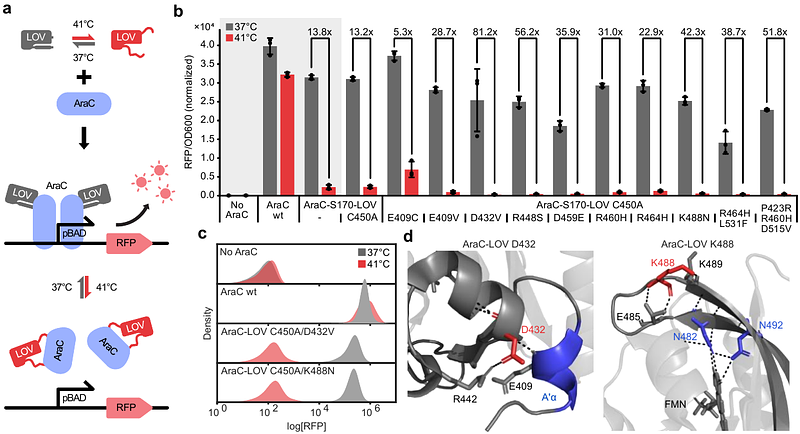Modular Engineering of Thermo-Responsive Allosteric Proteins

Modular Engineering of Thermo-Responsive Allosteric Proteins
Hoffmann, K. H.; Kroell, A.-S.; Motzkus, N. A.; Lemmen, N.; Happ, N.; Wolf, B.; von Bachmann, A.; Southern, N.; Vogd, F.; Aschenbrenner, S.; Niopek, D.; Mathony, J.
AbstractThermogenetics enables non-invasive spatiotemporal control over protein activity in living cells and tissues, yet its applications have largely been restricted to transcriptional regulation and membrane recruitment. Here, we present a generalizable strategy for engineering thermosensitive allosteric proteins through the insertion of optimized Avena sativa LOV2 domain variants. Applying this approach to a diverse set of structurally and functionally unrelated proteins in Escherichia coli, we generated potent, thermo-switchable chimeric variants that can be tightly controlled within narrow temperature ranges (37-41{degrees}C). Extending this strategy to mammalian systems, we engineered the first CRISPR-Cas genome editors directly modulated by subtle temperature changes within the physiological range. Finally, we showcase the incorporation of a chemoreceptor domain as an alternative thermosensing module, suggesting thermo-sensitivity to be a widespread feature in receptor domains. This work expands the toolkit of thermogenetics, providing a blueprint for temperature-dependent control of virtually any protein of interest.